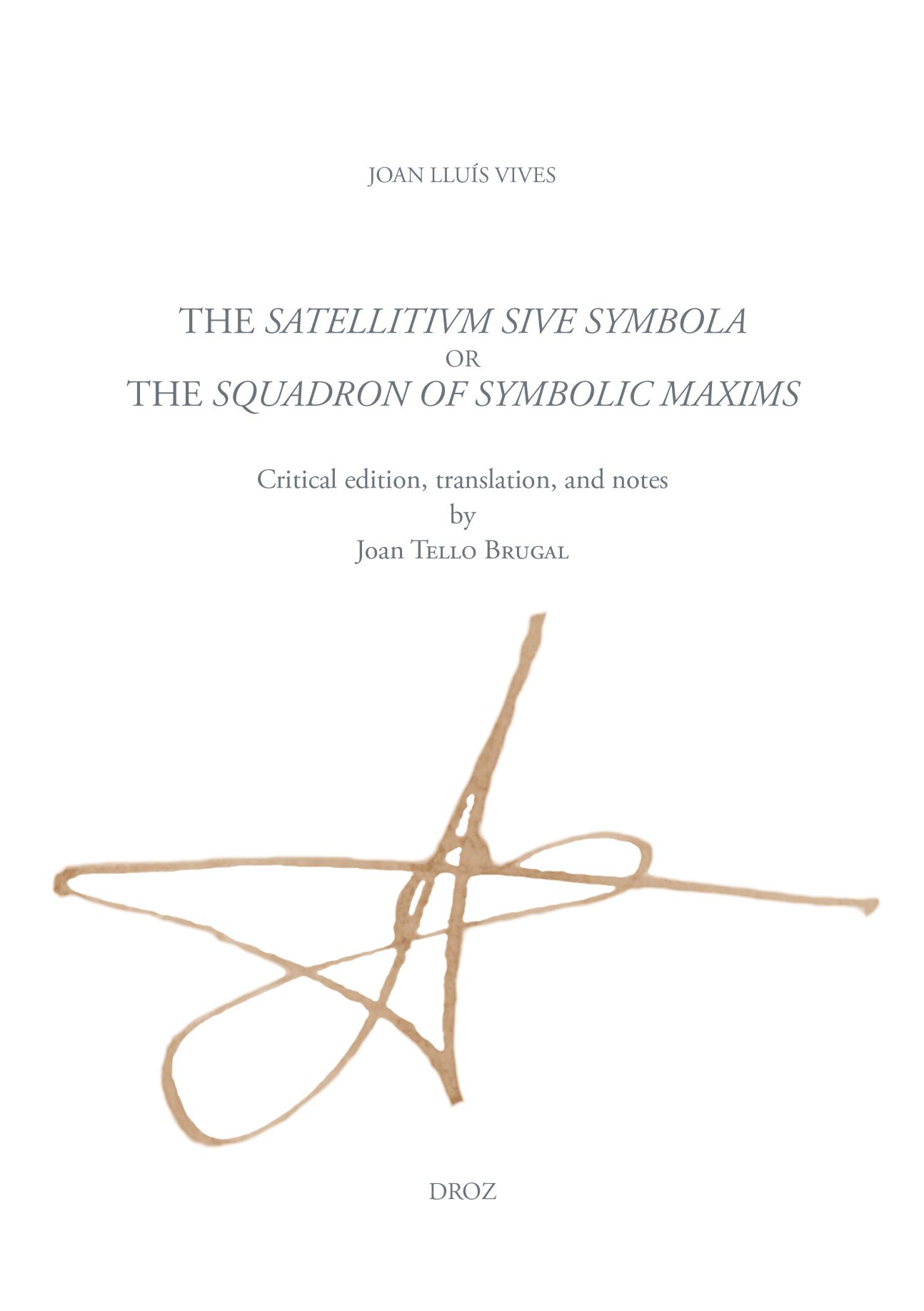
Joan Lluís Vives, Joan Tello Brugal (éd.), The Satellitium siue symbola, or the Squadron of symbolic maxims
À une époque où les guerres et la corruption des mœurs remettent en question les croyances et les politiques chrétiennes, l'humaniste valencien Joan Lluís Vives (Ioannes Lodouicus Viues, 1492/3-1540) rédige un recueil de 239 proverbes ou symboles afin de prémunir la princesse Marie et tout lecteur potentiel contre les vicissitudes de l'existence. Probablement inspiré par les Adages d'Érasme, Vives conçoit ses proverbes comme des gardiens spirituels dotés d'une variété de vertus et de sages enseignements. De plus, l'ensemble du livre agit comme un dispositif de protection pour ceux qui sont prêts à imprégner leur âme de la sagesse délivrée par chaque symbole.
Le Squadron of symbolic maxims est la première traduction anglaise complète du Satellitium siue symbola et il est présenté dans sa troisième et dernière étape. Cette édition est accompagnée d'un catalogue complet des œuvres de Vives. Ce livre pourra certainement éclairer à la fois les spécialistes de la Renaissance et les lecteurs érudits qui s’intéressent à la parémiologie et à la tradition classique.
—
In a period of time when warfare and the corruption of morals challenged Christian creed and polities, Valencian humanist Joan Lluís Vives (Ioannes Lodouicus Viues, 1492/3-1540) produced a book of 239 proverbs or symbols to protect Princess Mary and any potential reader against the vicissitudes of life. Probably inspired by Erasmus’s monumental Adages, Vives conceived his sayings as spiritual guardians armed with a variety of virtues and wise teachings. Moreover, the entire book acts as a protective device for those who are willing to engrave in their souls the wisdom delivered in each symbol.
The Squadron of symbolic maxims is the first complete English translation of the Satellitium siue symbola and it is presented in its third and final stage. This edition is accompanied by a thorough catalogue of Vives’s works. Both the Renaissance scholar and the learned reader interested in paremiology and the Classical Tradition will certainly find light and comfort in this fine piece of writing.
—
CONTENTS
INTRODUCTION
1. The circumstances of composition
2. The circumstances of publication
2.1. The Introductio ad sapientiam
2.2. The Epistulae duae de ratione studii puerilis
2.3. The page of corrections
3. The format and purpose
3.1. Satellitium
3.2. Symbola
3.3. The animus
3.4. Sententiae and notae
3.5. Conclusion
4. The intellectual context
4.1. The importance of aphorisms at the beginning of the 16th century
4.2. The role of Erasmus
5. The core underlying elements
5.1. Christ, the fathomable form of God
5.2. The Stoicism of Seneca
6. The salient themes
6.1. Existence
6.2. Virtue and moral perfection
6.3. Wisdom and knowledge of the self
6.4. Governance
6.5. Proverbs shared by Vives and Erasmus
7. This edition
7.1. The Latin text
7.2. The English translation
8. Closing words
I. THE SQUADRON OF SYMBOLIC MAXIMS
Critical edition, English translation, and notes
1. Table of concordances between editions
2. Index of symbolic maxims
3. Index of explicit proper names in the text
II. CATALOGUE OF THE WORKS OF JOAN LLUêS VIVES
1. Preface
2. The catalogue
3. Indexes
3.1. Chronological index of Vives’s works by date of completion
3.2. Alphabetical index of short-title forms
3.3. Alphabetical index of abbreviations
3.4. Critical index
3.5. Index of places of publication with printers
BIBLIOGRAPHY
Editions and translations (Vives)
Editions and translations (other authors), and lexica
Studies
GENERAL INDEX